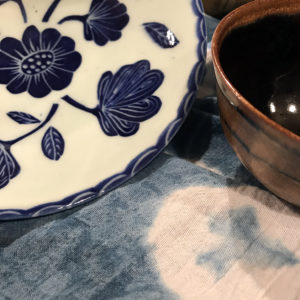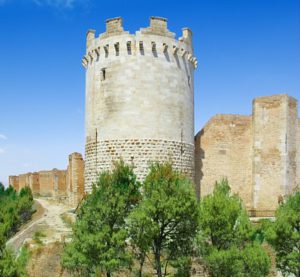With tonight’s new moon this 15th of May, the holy month of Ramadan begins. For those of the Muslim faith, it is a month of prayer, almsgiving, and most especially fasting. During the daylight hours, not even water is taken. But this daily period of deprivation is rewarded once the sun has set with good nighttime meals. A common food to break the fast each night is Harira, a traditional Moroccan soup made from chickpeas, lentils, tomatoes, and onions in a broth spiced with cinnamon, ginger, turmeric, chiles, and cumin. Harira is served all year long, but it is especially plentiful at Ramadan. I plan on making some this week, and maybe you’d like to, as well. There are many variations, some with meat, some vegetarian, some with egg and some with noodles, and all manner of spices. But here’s the recipe I’ll be using:
H A R I R A
1 onion, chopped finely
Olive oil
1 can chickpeas, rinsed and drained
8 cups chicken broth
1 cup dried red lentils
2 cans chopped tomatoes
Dried chiles, for a little heat (or 1 teaspoon chili powder)
1 teaspoon cinnamon
1 teaspoon cumin
1 teaspoon ginger
1 teaspoon turmeric
Salt & Pepper
Flat leaf parsley, chopped
Lemon wedges
In a large pot, cook the onion in some olive oil until it is translucent. Add the chickpeas and the broth. Bring to a boil, then add the lentils, tomatoes, and spices. Season with salt & pepper to taste. Bring to a boil again and simmer for a half hour or so, until the lentils are mushy and the soup has thickened. Ladle into bowls, finishing off each serving with a bit of fresh olive oil, chopped parsley, and a lemon wedge for squeezing. This recipe makes about 6 to 8 servings.
In places like Morocco, this simple yet hearty soup is often the first thing folks take to break their fast with the setting sun. It is a bit of spiritual and physical nourishment. Other wonderful things follow, and often the feasting goes on well into the night. And then to bed… until the tabbal, the drummer, wends his way through the dark and empty streets to awaken everyone for the final meal before sunrise, usually bread with mint tea. And so each day goes in this month of fasting until the next new moon.
This year, the start of Ramadan coincides with the arrival of Cold Sophie, who, according to German legend, brings a blast of cold weather, winter’s last hurrah. But they say it’s been such a long and cold winter that I’m not going to give Sophie any attention at all. She and her fellow Ice Saints have had a ball of it this year, so enough of that. She can have some Harira with us if she wants, but that’s it. We’ve got our sights set on summer.
Image: My husband may be a potter, but I still can’t help buying bowls I like from other potters, too. These porcelain bowls are brand new additions to our collection. They’re by local potter Nena Escobar. I found them just last week, and I suspect we’ll be eating Harira out of them this week. Oh and if you do want to read more about Cold Sophie and the Ice Saints, well… here’s an earlier Book of Days chapter about them.

